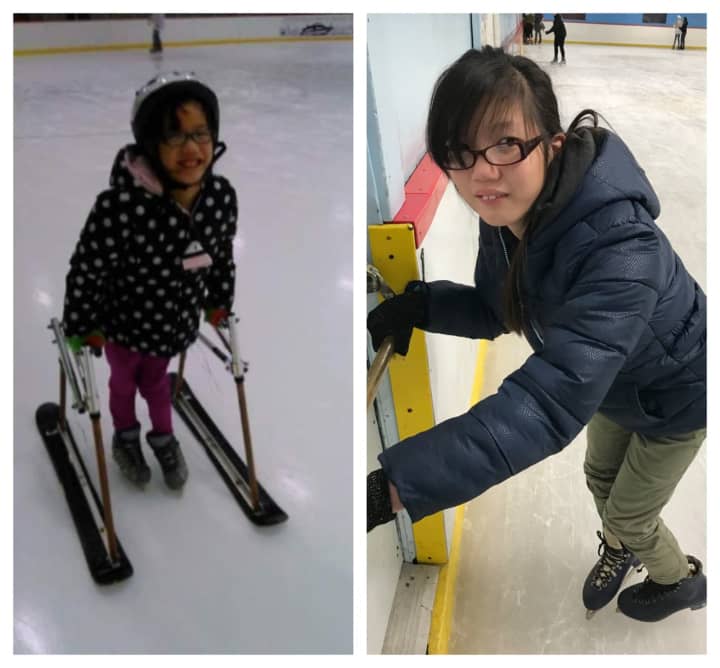The 13-year-old has cerebral palsy but had an adaptive walker for snow and ice made four years ago that she planned on using.
Kateri's hopes of skating with her friends were crushed as soon as she entered Fritz Dietl Ice Rink in Westwood Wednesday, her mom Colleen Orso said.
A rink employee called owner Carola Dietl, who told the family over the phone that the walker was prohibited and would pose a threat to other skaters. She also said it was prohibited because the the rink does not have liability insurance.
A list of rules hanging on the rink's wall does not mention foreign objects on the ice, saying only that food and beverages are prohibited.
Dietl declined comment to Daily Voice.
As a result, Kateri spent the entirety of Wednesday's outing hugging the wall in tears. She made it halfway around the rink before being helped off of the ice.
"It took away all of her independence and dignity," her mother said.
"I also was on the ice holding her up, which definitely created a much more unsafe situation."
This is the first time the family has encountered a problem at any rink, Orso said.
The Americans with Disabilities Act maintains that an individualized assessment must be made based on reasonable judgment relying on current medical knowledge or on the best available objective evidence:
The nature, duration, and severity of the risk; the probability that the potential injury will actually occur; and whether reasonable modifications of policies, practices, or procedures or the provision of auxiliary aids or services will mitigate the risk.
"There was no way that the owner could determine that it was unsafe since she was in the phone," Orso said. "There was no other accommodation offered, which is what is needed if there is a determination that it is unsafe.
The ADA's § 36.208 "direct threat" part b maintains mobility devices are permitted in any areas open to pedestrian use (Title III, § 36.311)
(a) Use of wheelchairs and manually-powered mobility aids. A public accommodation shall permit individuals with mobility disabilities to use wheelchairs and manually-powered mobility aids, such as walkers, crutches, canes, braces, or other similar devices designed for use by individuals with mobility disabilities in any areas open to pedestrian use.
"It’s not often Kateri gets to do things like this," Orso said. "She was so excited to show off she could skate. We have never had a problem with any other rink.
"It was heartbreaking."
Click here to follow Daily Voice Englewood and receive free news updates.



